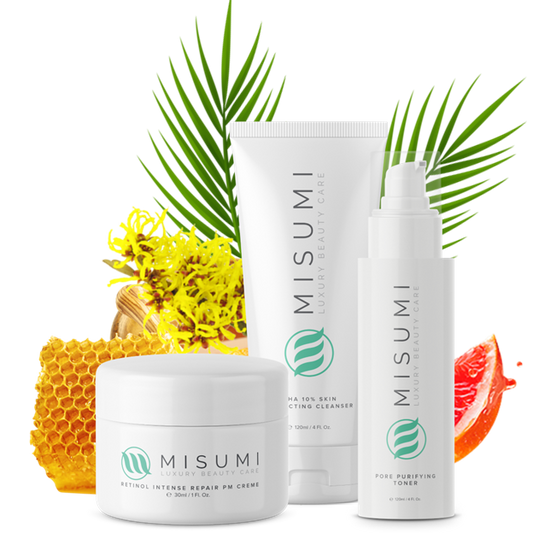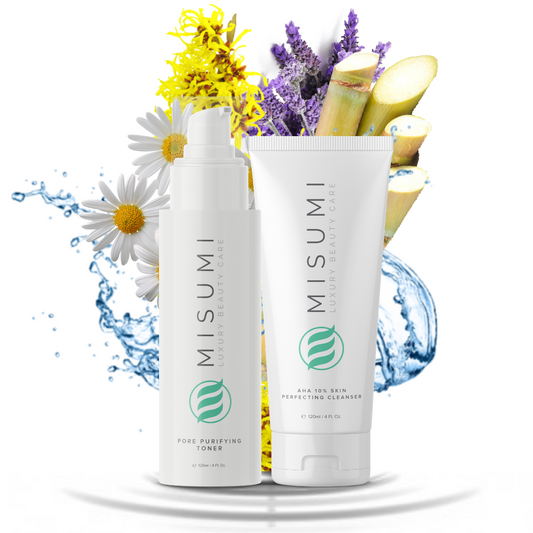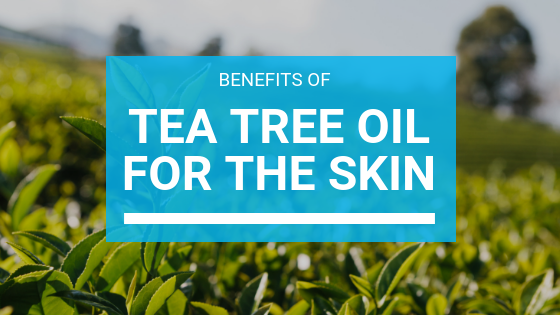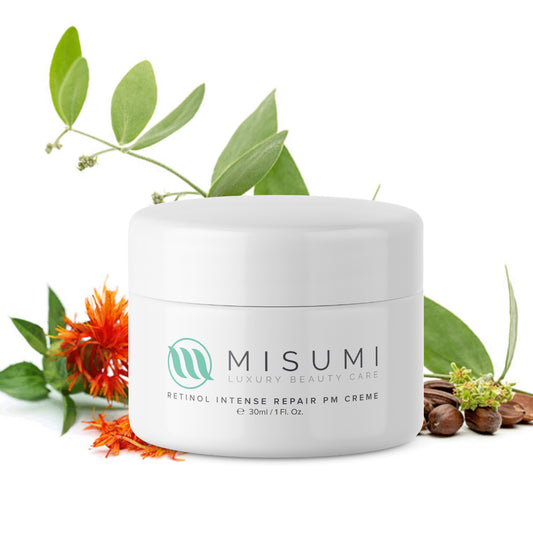Every one of us has incorporated some kind of oil in our skincare routine at one point or another. This comes as no surprise when you consider that various oils have been used for centuries for their beautifying properties. Tea tree oil is no exception.
Derived from a plant known as Melaleuca in Australia, this miracle oil has multiple health benefits for the skin, hair, and body. It has been used to treat certain skin conditions for years, and its antiseptic properties have been well-established since the 1920s.
Today, the use of tea tree oil is more widespread than ever, even with a range of traditional and effective skincare products available. From nail fungus to acne, a few drops of tea tree oil can work wonders for our health. So let's find out exactly how it affects our skin.
How Does Tea Tree Oil Affect Our Skin?

Tea Tree Oil for Acne
You might have been recommended Australian tea tree oil as an effective spot treatment. But have you ever wondered why exactly it's used for that purpose? Are the health claims true - can it really get rid of your spots?
It turns out that tea tree oil is great for inflamed skin. It has incredible antibacterial, antifungal, and anti-inflammatory properties that shrink the pimple and reduce the redness and swelling around it.
Studies have shown that its benefits can work on mild and moderate acne when used both as a spot treatment and as an integral part of your skincare routine. For example, you're likely to see a difference in your skin if you're using things like tea tree creams and exfoliators.
Moreover, research suggests that it's just as effective at reducing acne as benzoyl peroxide, which is found in many facial cleansers.
Using Tea Tree Oil as an Acne Treatment
As we've mentioned above, you can easily use tea tree oil as a spot treatment. Just dip a cotton ball in the bottle and place it directly over the pimple.
You can also add a few drops of tea tree essential oil to your regular face mask or cleanser. However, if you have sensitive or dry skin, we recommend mixing it with a carrier oil. This is because, like all essential oils, undiluted tea tree oil is very potent when used in isolation and can potentially cause skin irritation. If you don't have a carrier oil on hand, just add a few tablespoons of water to dilute it.
Alternatively, you can pick up a tea tree spot treatment from your local drugstore. This usually comes as a tea tree oil cream or gel.

Tea tree oil also makes for an amazing overnight treatment. Apply it to your pimples before bed, let it sit overnight, and wash it off in the morning.
Also, remember that you should only use it once or twice a day. Some might even find it beneficial to use this treatment only at night. If you overuse tea tree oil, you can dry out your skin and cause excess sebum to emerge as a protective mechanism.
Tea Tree Oil for Acne Scars
Acne scars are very stubborn and difficult to deal with. They appear as a consequence of using the wrong type of treatment or popping pimples on your own.
Even though it might take longer to heal and reduce acne scars, tea tree oil can help the process. It will lighten the scars and prevent future acne from appearing. But how? Well, this miracle ingredient penetrates deeply into the pores and cleanses them from the inside out, which prevents congestion from occurring in the first place.
For a more effective acne scar treatment, you can make your own concoction. Just combine tea tree oil with other oils, such as vitamin E oil or jojoba oil, both of which have certain benefits that work wonders on acne scars.
Alternatively, make an at-home mask using raw honey, tea tree oil, oats, and turmeric. This recipe will brighten and refresh your skin.
Tea Tree Oil for Eczema and Psoriasis
These conditions have very unpleasant symptoms, such as itchy, dry, inflamed, and red skin. These effects can be so uncomfortable that they can impact the quality of the sufferer's life.
While there isn't a cure, you could take action to prevent the symptoms from worsening. Tea tree oil is here to help. It eases the symptoms of eczema and psoriasis thanks to its antifungal and anti-inflammatory benefits, and it promotes wound healing for the affected skin more quickly.
When combined with a natural exfoliator, tea tree oil may rejuvenate the skin and eliminate dead cells, making these skin issues easier to deal with and minimizing the chances of future scarring.
One of the main symptoms of eczema is the itchiness that comes along with it. This, combined with the dry patches and rashes, make it a nightmare to control. However, tea tree oil has antibacterial properties that can relieve itching. It will also prevent further irritation since you'll be less likely to touch your skin afterward.
There are several ways you can treat eczema using tea tree essential oil. One of them is to add a couple of drops into your regular body wash, moisturizer, or face mask and apply it to the affected area. Usually, people see some improvement after a couple of applications.
Tea Tree Oil for Razor Burns

This one is for people who suffer from irritated skin after shaving and experience razor burns. Tea tree oil may heal and calm irritated skin while reducing the marks and burns that shaving leaves behind. It'll also soothe your skin during that awkward hair growth period.
Potential Wound Healer
Due to its anti-inflammatory benefits and healing properties, tea tree oil can reduce inflammation within the skin and boost the activity of the white blood cells, which are an essential component of healing.
You can use it with other oils like wild rose oil or vitamin E oil to tame its potency, or if your skin isn't overly sensitive, you can add a few drops directly to the wound.
Helps with Chickenpox
This particular skin disease is especially hard to deal with. It comes with itchy red marks and spots, which can lead to scars. Tea tree oil can relieve itchiness and minimize the risk of scarring.
Simply add a drop or two of the essential oil to your shower gel or face cleanser for an effective natural treatment.
Tea Tree Oil as a Natural Makeup Remover

Did you know that tea tree oil can remove makeup without aggravating your skin? Try out this easy DIY makeup remover recipe.
Add a few drops of tea tree essential oil to 60 ml of coconut oil (or another carrier oil of your choice) and put the mixture in a jar or bottle. Shake it to blend the mixture. After that, it's ready to use. Place it on a cotton pad and gently rub it on your face.
Tea Tree Oil for Inflammation
Since tea tree oil has many anti-inflammatory properties, it can relieve and heal painful and inflamed areas. Just make sure not to use it directly because it can dry out your skin. For the best results, add a few drops in your everyday moisturizer or body butter and apply it to the affected area multiple times a day.
Natural Deodorant

As we've already mentioned, tea tree oil contains antibacterial properties, meaning it has the potential to control underarm scent. It kills off the bacteria that causes the unpleasant smell in the first place. As a result, it's an ideal option for people who want to avoid conventional deodorants due to their chemical content and are looking for a natural and accessible alternative.
Tea Tree Oil Products
Although tea tree oil is an essential oil, that isn't the only form you can use. There are plenty of products in the skincare industry that contain this miracle ingredient. From tea tree oil face wash to moisturizers, there are millions of ways to incorporate it into your skin care routine.
You'll likely find this essential oil combined with other ingredients, such as mint, aloe vera gel, lavender oil, and more.
And it's not just used in skincare. You'll find it in haircare, too! We're sure you've come across tea tree oil shampoo and conditioner before.
Other Uses of Tea Tree Oil
Tea tree oil isn't just good for skin inflammation. Scientific evidence shows it can also treat nail fungus and athlete's foot. According to this study, tea tree oil was proven to reduce fungus in nail infections. However, we recommend seeing a doctor or a board-certified dermatologist if you have a fungal infection, as you may need antibiotics.
Tea tree oil is also an effective treatment for insect bites and lice.
It's also been linked to hair growth, as it can help reduce the build-up of chemicals and dead skin on the scalp.
Tea Tree Oil and Burns
While this ingredient is usually safe, avoid applying tea tree oil in large amounts.
Make sure to carry out a patch test before adding it to your skincare routine. (But more on that later.) This is because essential oils can result in burning, itching, and redness, especially for those with sensitive or dry skin.
If you're using tea tree essential oil in a home recipe, make sure to use it with a carrier oil, such as olive oil or coconut oil. This will cancel out the negative effects of the essential oil so you can use it safely.
Tea Tree Oil and Skin Types
Tea tree oil is safe for all skin types. In fact, people with oily skin will benefit from using it especially. This is because it removes excess sebum from the skin and has antibacterial properties that will calm breakouts.
Things to Keep in Mind when Purchasing Tea Tree Oil
There are many different tea tree oils available, so purchasing the right kind can be a little tricky, especially if you have sensitive and acne-prone skin.
When buying tea tree oil, make sure it's pure without additives. Ideally, it should be 100% natural and organic. In addition, it should have a 10 to 40 percent concentration of terpinen, the main component that carries this oil's antibacterial and antimicrobial properties. This is what helps with skin infections and other issues.
Tea tree oil is also known as melaleuca oil, so keep that in mind when you're on the lookout for it.
Precautions and Side Effects

There are some precautions you should be aware of when using this ingredient, especially in its pure essential oil form.
First, don't swallow it! Tea tree oil is toxic when ingested, so you should keep it out of reach of children. The symptoms of tea tree oil ingestion include confusion, a rash, an inability to walk around, and even a coma.
It's also toxic for pets, so do not use it on them.
As we mentioned above, tea tree oil may cause burning and irritation. Conduct a patch test before applying it generously to the skin. A patch test is when you apply a product you wish to test on a small area to see how you'll react to it. Wait at least 24 hours before you deem it safe to use. Some people, especially those with sensitive skin, might suffer from skin irritation if they use tea tree oil.
If you have a tea tree allergy, don't use it - even in small amounts.
Introducing Tea Tree Oil into Your Skin Care Routine
As we mentioned above, if you want to reap this ingredient's benefits but are unsure where to start, try adding tea tree oil to your existing skin care products. Alternately, there are many other products you can pick up that contain tea tree oil.
If you have oily skin or mild to moderate acne, we'd recommend using it in conjunction with other existing products that contain acne-fighting ingredients, such as this Complete Clear 3-Step System. The cleanser, toner, and moisturizer in this set work to kill acne-causing bacteria, reduce inflammation, unclog pores, remove impurities, and make your skin glow.
The Verdict
In summary, tea tree oil has amazing antibacterial, antifungal, and anti-inflammatory effects that can work on various skin conditions.
From fungal skin conditions such as nail fungus and athlete's foot to acne and body odor, a few drops of tea tree oil can do wonders for your health.
Not to mention, it's easy to get a hold of and generally lasts a very long time. The list of benefits goes on and on.
It generally takes a couple of days to see results from regular use. But if your symptoms worsen, always consult your doctor or a board-certified dermatologist. And remember, like with all essential oils, always conduct a patch (or spot) test before use.
References
Tea tree oil gel for mild to moderate acne; a 12 week uncontrolled, open-label phase II pilot study
The efficacy of 5% topical tea tree oil gel in mild to moderate acne vulgaris
A comparative study of tea-tree oil versus benzoylperoxide in the treatment of acne








